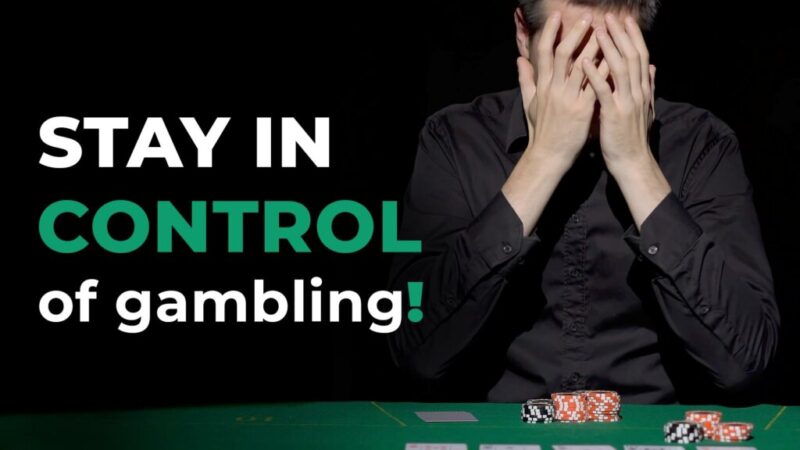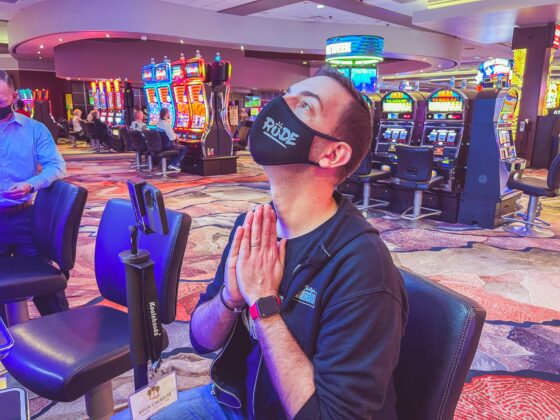Gambling is a multifaceted phenomenon that captivates millions worldwide, weaving together threads of chance, excitement, and the allure of the unknown. From the buzzing atmosphere of a casino to the solitary thrill of an online bet, the act of gambling taps into deep-seated psychological impulses that can be both compelling and perilous.
Why do we gamble? Is it merely the prospect of hitting the jackpot, or does it speak to something far more intricate within our psyche? This exploration delves into the reasons behind our attraction to gambling, examining the emotional highs and lows it engenders, as well as the cognitive biases that often cloud our judgment. Moreover, navigating this seductive landscape requires awareness and responsibility.
In a world where the lure of risk can swiftly escalate into a struggle for control, understanding the psychology of gambling becomes essential—not just for the gamblers themselves, but for everyone affected by their choices. Together, we’ll uncover the layers of behavior, thought, and emotion that characterize our relationship with risk, while emphasizing the importance of maintaining a mindful approach to the games we play.
The Role of Risk and Reward in Decision Making

In the intricate web of human decision-making, the interplay of risk and reward becomes a tantalizing dance, especially within the realm of gambling. Each wager is infused with a blend of excitement and trepidation, where the potential for a life-changing windfall tantalizes the mind, luring players into a cycle of hope and speculation.
Consider a seasoned poker player, whose every bet is calculated, straddling the line between intuition and strategy. In contrast, a novice might haphazardly toss chips into the pot, driven by the thrill of possible gain rather than any assessment of odds.
This variance in decision-making reflects deeper psychological currents—it’s not just about math; it’s about the stories we tell ourselves, the seduction of fortune, and the stark reality of loss. In gambling, the stakes rise high, and the reward might shimmer like a mirage, prompting both seasoned veterans and eager newcomers to weigh their choices against an ever-present backdrop of uncertainty.
Ultimately, understanding this delicate balance can empower individuals to navigate their gambling habits with greater awareness and self-control.
The Allure of Winning: Hope and Illusion

The thrill of a potential win in gambling is a magnetic force, pulling players into a vortex of hope and illusion. This enchanting promise of striking it rich often overshadows the stark reality of losses, turning a simple game of chance into a complex psychological battleground.
As individuals chase their dreams of fortune, the highs of occasional wins amplify their fantasies—each jackpot feels like a validation, a glimpse of the life they desire. Yet, lurking beneath this allure lies a duplicitous nature; the very randomness that makes gambling enticing can just as easily lead to despair.
In this intricate dance between aspiration and reality, gamblers oscillate between invigorating exhilaration and crushing disappointment, perpetually ensnared in a cycle fueled by the belief that the next bet might just be the one to change everything.
The Impact of Near Misses on Gambling Addiction

The phenomenon of near misses is a powerful psychological catalyst in the realm of gambling addiction, often leaving players with an intoxicating mix of hope and frustration. When gamblers experience a near miss—like landing two out of three symbols on a slot machine—its like a tantalizing tease, igniting emotions that can overshadow rational judgment.
This ephemeral sense of being so close to winning can create an illusion of control, leading individuals to believe they’re on the cusp of success. It’s not just a fleeting disappointment; rather, these moments can forge a relentless cycle of persistent play.
As they chase that elusive victory, many become ensnared in a web of increasing bets, convinced that the next round will finally deliver what they seek. Over time, this cycle can spiral into a profound dependency, as the thrill of nearly winning becomes an addictive lure, compelling players to chase after their dreams—often at great personal cost.
Understanding this dynamic is essential for anyone hoping to navigate the treacherous waters of gambling responsibly.
Conclusion
In conclusion, the psychology of gambling reveals a complex interplay of emotions, motivations, and cognitive biases that drive individuals to engage in this activity. While the thrill of winning can be intoxicating, its crucial to remember that the outcome of any single bet is inherently unpredictable and you cannot control. Understanding these psychological factors can empower gamblers to make informed decisions and develop healthier habits.
By recognizing the signs of potential gambling-related issues and implementing strategies to maintain control, individuals can enjoy the excitement of gambling as a form of entertainment, rather than allowing it to spiral into a compulsive behavior. Ultimately, fostering awareness and establishing boundaries are essential steps in ensuring that gambling remains a fun and responsible pastime.


